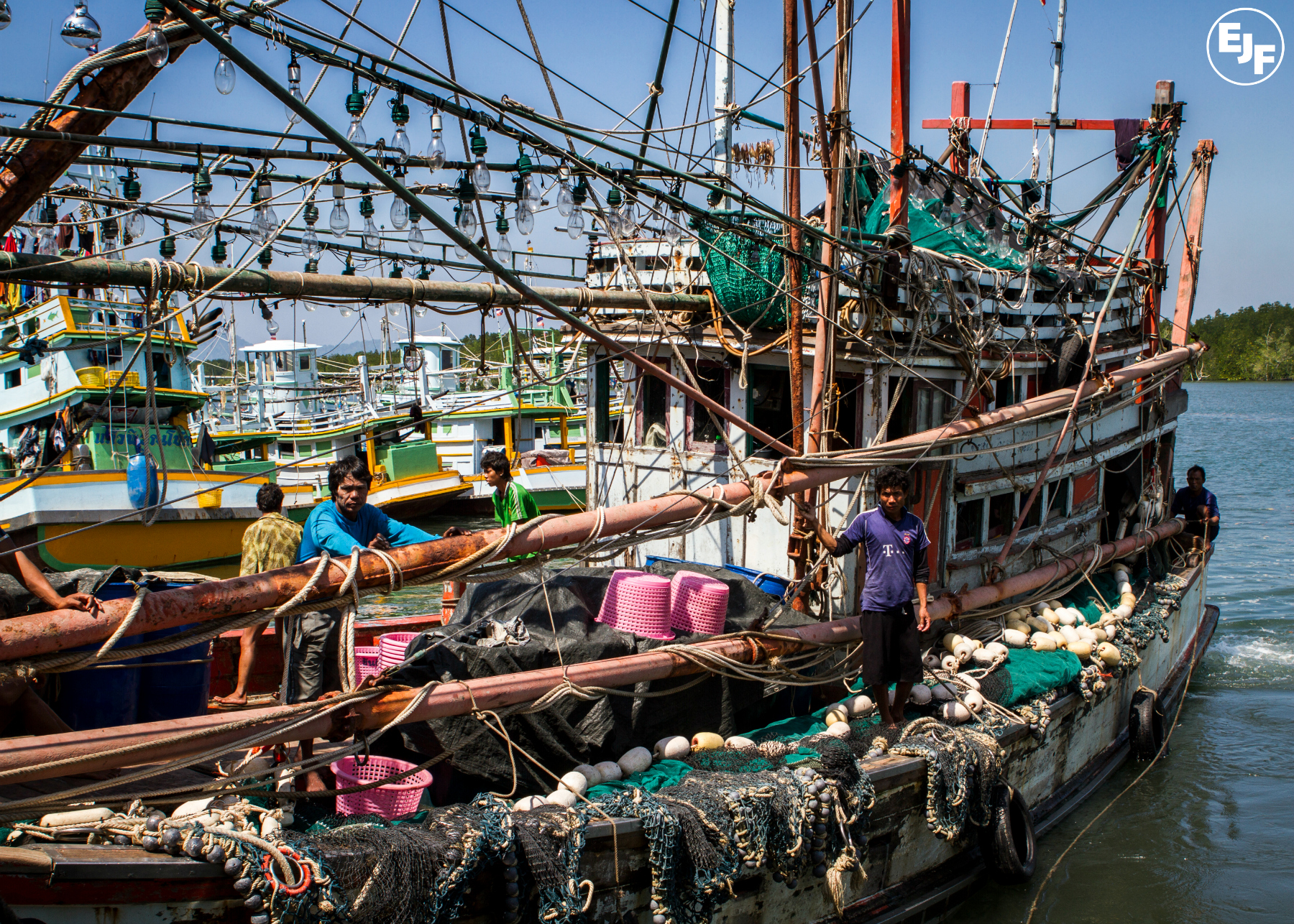
EJF welcomes ILO Convention 188 coming into force, calls on all nations to ratify
Lithuania became the 10th country to ratify the ILO Convention 188 (16 Nov), pushing it over a critical threshold for its entry into force.
Once in place the convention will establish minimum labour standards to improve the safety, health and medical care for workers on fishing vessels and ensure they have the protection of a written work agreement and the same social security protections as other workers.
Lithuania’s ratification follows that of Angola, Argentina, Bosnia and Herzegovina, Congo, Estonia, France, Morocco, Norway and South Africa. Last month, the convention also received the support of the European Council.
EJF is calling on all States to swiftly ratify and fully implement the convention, and take the necessary steps to ensure fishing vessels abide by the provisions within it. This is particularly critical in States, such as Thailand, who continue to grapple with serious human rights abuses in their seafood sectors.
“For too long, rogue fishing vessels and companies have been able to maximize short-term profits at the expense of basic human rights with many using trafficking, slave labour and even torture and murder to produce the seafood that enters our supply chains. If implemented, this new convention will go a long way to protect the rights of workers at sea and end the systematic abuse we have witnessed in fisheries around the world. We urge all countries to quickly add their name to those that have already ratified the convention.” EJF Executive Director Steve Trent
EJF investigations have also uncovered widespread and persistent human rights abuses in the seafood sector, including forced and slave labour, human trafficking, the exploitation of migrant workers, violence, intimidation and even murder.
Over the last three years, EJF’s investigations in Thailand have exposed brutal and systematic abuse of migrant and trafficked workers across the Thai seafood sector.
As Thailand works to tackle these abuses, EJF urges it to set an example by ratifying and implementing the ILO convention. This will be an important step to reform Thai labour regulations and to protect its vulnerable migrant workforce.
“The Thai Government has made progress reforming its fisheries laws, but these efforts will continue to be undermined if the government does not address the continued gaps in its labour laws, that leave vulnerable migrant workers without important, basic protections. By ratifying and implementing the ILO’s Convention 188 the Thai Government would set a clear indication that it is taking the challenges facing its fishing industry seriously and taking steps towards meaningful and sustained change.” EJF Executive Director Steve Trent
Notes to editors
- Over 38 million people work in capture fisheries globally. The industry is recognised to be highly dangerous and under regulated.
- The International Labour Organization is the UN agency that sets global standard for working conditions. Its Convention 188 specifically focuses on work in fishing and will improve the working conditions for millions of workers in the fishing sector.
- The Convention has now been ratified by 10 nations - Angola, Argentina, Bosnia and Herzegovina, Congo, Estonia, France, Lithuania, Morocco, Norway and South Africa, and will come into force on 16 November 2016.
- The Convention will be applicable to all types of commercial fishing, and sets international standards for safety on board fishing vessels, food, accommodation and medical care at sea, employment practices, insurance and liability.
- Thailand is the world’s 27th largest economy with a GDP of US$410 billion. Its seafood industry employs more than 800,000 people and its exports were valued at $5.63 billion in 2015.
- Not only are Thailand’s fish stocks and marine biodiversity in crisis, but also the Thai seafood industry is globally notorious for the widespread abuse of migrant workers that has been documented by EJF and others. Thailand was given a ‘yellow card’ by the European Commission in April 2015 following “shortcomings in fisheries monitoring, control and sanctioning systems” and remains on the Tier 2 watchlist in the US State Department’s Trafficking in Persons Report, for the continued use of forced labour, forced detention and extreme violence and murder in its seafood sector.